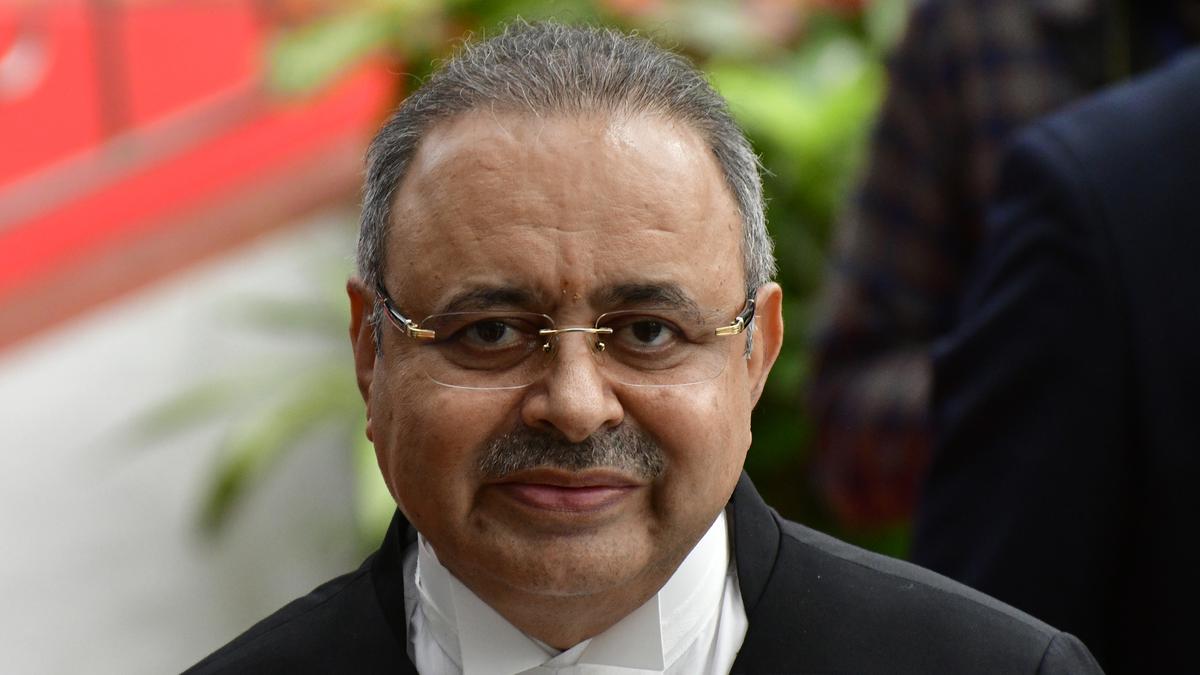
Situation from Kashmir to Kerala makes it must to retain sedition law: Law panel chief
The Hindu
Amid a clamour for repeal of the law on sedition, Law Commission chairman Justice Ritu Raj Awasthi on June 27 said the present situation from Kashmir to Kerala and Punjab to the North-East makes it must to retain the law to safeguard the “unity and integrity of India”. Defending the panel’s recommendation to retain the law, which is at present under abeyance following directions of the Supreme Court issued in May last year, he said enough safeguards have been proposed to prevent its misuse.
Amid a clamour for repeal of the law on sedition, Law Commission chairman Justice Ritu Raj Awasthi on June 27 said the present situation from Kashmir to Kerala and Punjab to the North-East makes it must to retain the law to safeguard the "unity and integrity of India".
Defending the panel's recommendation to retain the law, which is at present under abeyance following directions of the Supreme Court issued in May last year, he said enough safeguards have been proposed to prevent its misuse.
In an exclusive interview, he told PTI that special laws such as the Unlawful Activities (Prevention) Act and the National Security Act operate in different fields and do not cover the offence of sedition and therefore, the specific law on sedition needed to be there too.
Justice Awasthi asserted that while considering the usage of the law on sedition the panel found that “the present situation right from Kashmir to Kerala and Punjab to the North-East is such that the law on sedition is necessary to safeguard the unity and integrity of India”.
He also said that the sedition law being a colonial legacy was not a valid ground for its repeal and several countries, including the U.S., Canada, Australia and Germany, have their own such laws.
In its report submitted to the government last month, the 22nd Law Commission headed by Justice Awasthi supported retaining section 124A of the Indian Penal Code (IPC) with safeguards to prevent its misuse.
The recommendation triggered a political uproar with several opposition parties alleging that it was an attempt to stifle dissent and voices against the ruling party ahead of the Lok Sabha elections next year.

‘Instead of accusing Gen-Z of lacking skills or discipline, we need to ask what drives them’ Premium
At a recent event held in the city, Cambridge University Press & Assessment launched an advisory panel comprising leaders from top global corporations, aiming to bridge the employability gap in India and better align academic output with industry needs. A whitepaper released at the event highlighted the growing importance of communication skills, the need for stronger collaboration between industry and universities, and strategies to bridge the persistent skill gap.

Under the NBS, newborns are screened for communication disorders before they are discharged from the hospital. For this, AIISH has collaborated with several hospitals to conduct screening which is performed to detect hearing impairment and other developmental disabilities that can affect speech and language development. The screening has been helping in early intervention for those identified with the disorders, as any delay in the identification poses risk and affects successful management of children with hearing loss, according to AIISH.











